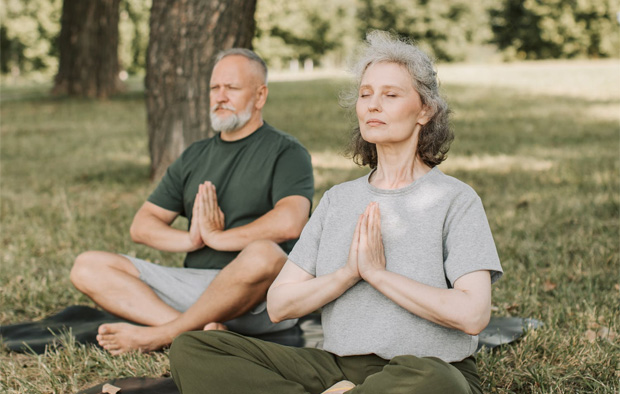6 Tips for Staying Fit After Retirement

6 Tips for Staying Fit After Retirement
Retirement is a major step in life that triggers all kinds of feelings for most individuals from fear and nervousness to exhilaration, uncertainty, and everything in between. Working full-time or part-time and then stopping in a sudden means that life slows down significantly.
Work is known to keep human beings active both physically and mentally and without this habit that we have become accustomed to, it can be hard for the retired to stay cognitively alert and physically active. Not to fret though, if you have retired or are approaching your senior years, there are a few things you can still do to remain active, happy, and healthy during this massive lifestyle switch. Click here to find out more about improving your mobility.

1. Stay Socially Active
Staying connected with your friends or loved ones is important to your health, regardless of age. However, it is even more important once you have retired. If you are like most people, you make healthy connections through your work and so, retiring can weaken or even result in loss of touch with those individuals.
In order to stay healthy and happy, you need to stay connected to people. In fact, it is known that staying socially active helps reduce an individual’s chances of developing certain conditions like depression. Plan outings with friends and family and be sure to nurture those relationships.
If you are single and would like to find a life partner or just meet someone new, you can of course still date as an older person. The dating sites that are aimed at the younger generations might not be for you though. Instead, opt for a Mature Senior Dating Site where you can connect with like-minded people of a similar age to you.
2. Engage in Cognitive Exercises
The brain requires exercise as well in order to remain healthy. Activities like taking on a new hobby, learning a new skill or doing puzzles can be excellent ways to keep your brain active.
Another great way to stimulate cognitive abilities is by being creative. As a matter of fact, studies have linked trying new and creative things to a reduced chance of developing Alzheimer’s disease. Education is another way to stay mentally active. Taking a non-credit course, attending a vocational school, or auditing a class at the local college are all great ways to stay cognitively active without spending too much money.
In addition to the methods mentioned, seeking specialized care or engaging in programs designed for seniors can be incredibly beneficial. Organizations like Lutheran Senior Services offer a range of activities and programs that are tailored to enhance cognitive and physical well-being among the elderly. Their holistic approach ensures that seniors not only stay mentally active but also enjoy a sense of community and belonging, vital components for overall health and happiness.

3. Stay Active
Working on a regular basis can result in numerous benefits, especially for retired seniors. Working out may seem like a daunting undertaking for the elderly, but it is easier to stay active than many people think. A few examples include going for a jog, hiking, cycling or even playing a yard game. Whichever way you wish to engage in exercise, it is imperative to keep your blood pumping.
Additionally, exercise can help reduce the risk of certain conditions including type 2 diabetes, heart disease, and even some types of cancer. Staying physically active not only helps boost your well-being, but also your cognitive ability.

4. Watch Good TV
Chances are you have heard that TV rots the brain. While this is true in most cases, there are situations where watching TV is actually good for your brain. When watching an interesting show, the brain is working to understand what is happening, which is a great way to keep you cognitively active.
Watching a mystery drama or an educational documentary calls for careful attention in order to comprehend what’s happening. This provides positive stimulation, helping keep the brain alert and healthy.

5. Game Night!
Consider inviting your friends or loved ones for game night. According to studies, playing card games is liked to better immunity in senior adults. That’s because the players need to engage their brains in order to win the game.
6. Find Purpose
After retirement and a lot of time in your hands, you may start to lose a sense of purpose in life. To prevent this, consider engaging in tasks like volunteering or spending more time with your loved ones.
Collaboration – Guest Article.





